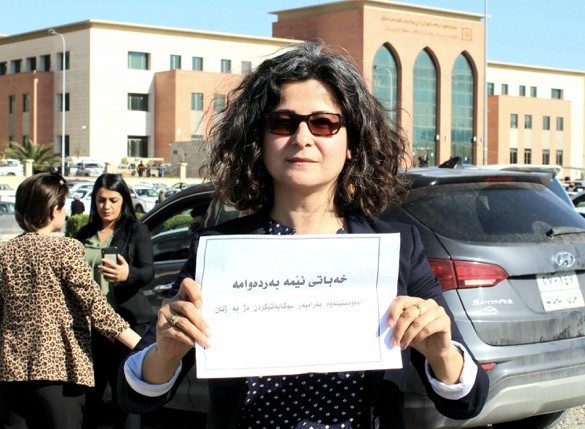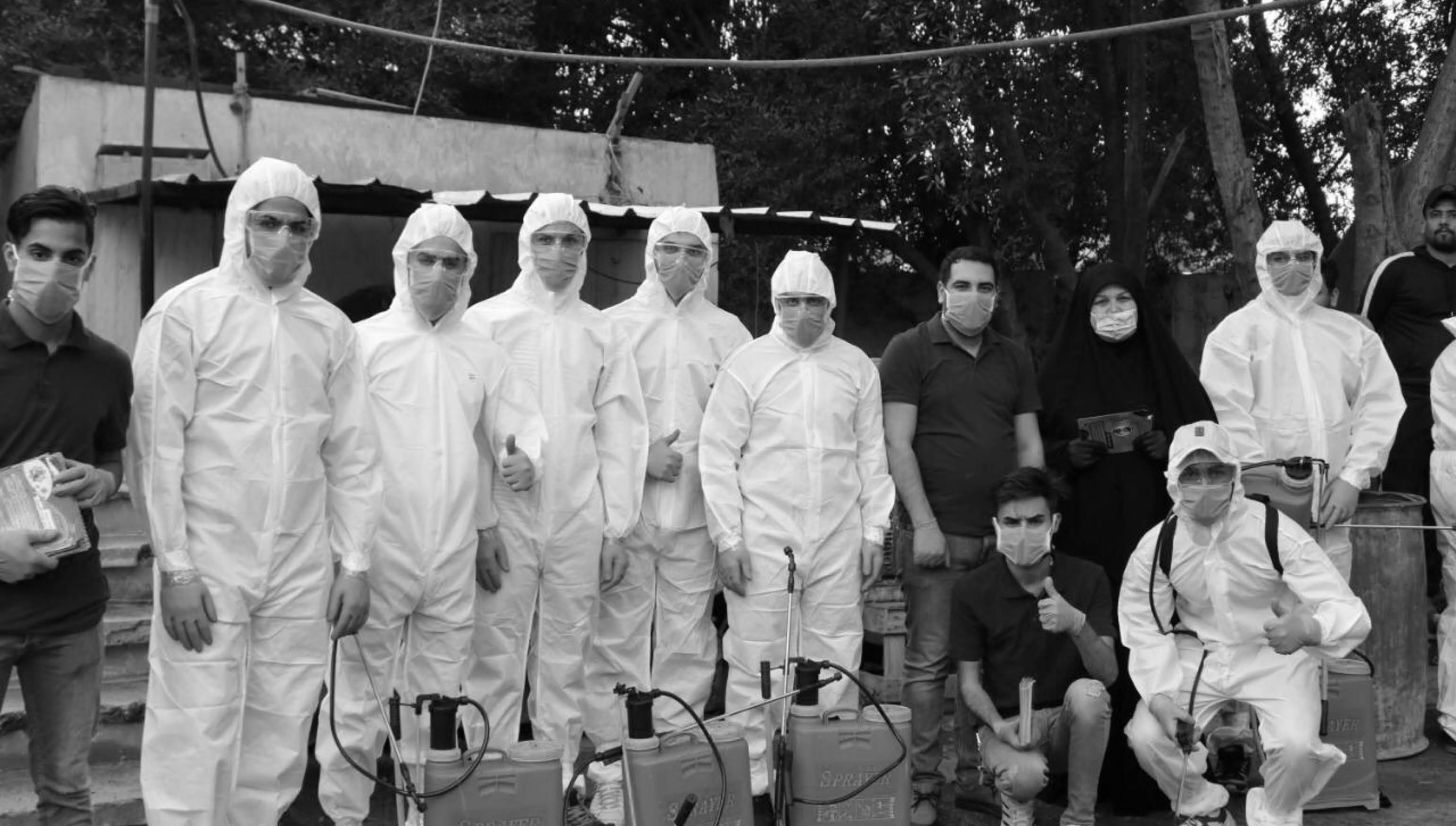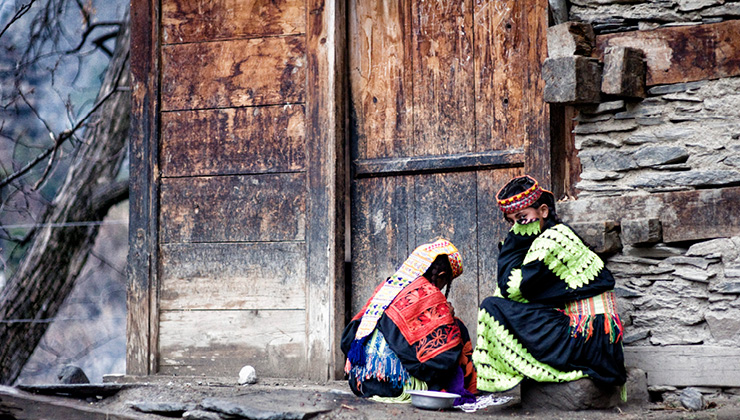As a feminist who engages in knowledge production, education, and activism, I am well aware of how feminists are silenced, our concerns are undermined, and our integrity is attacked. The continuous condemnations, intended to defame, exhaust, and silence us, happen when we are still alive. But we also know that, like so many before us, our critics may misinterpret our actions or write us out of history after we die. This is an attempt to correct some of the distortions about the women’s movement in Kurdistan-Iraq, pre-empt future ones, and set the record straight.
In this region, political resistance against dictatorship and ethnic oppression obscured the struggle for gender justice for decades. Only after 1992, when the Kurdistan Regional Government was established, women’s rights organisations proliferated. Now we can speak of a women’s movement which largely consists of women’s rights groups, but also includes individual activists, journalists, lawyers, academics, and writers. Despite its shortcomings (division, lack of access to feminist literature, under-development, reliance on short-term funding), this movement has been able to bring about change.
An important change has been in legal reform in relation to women’s protection from violence, family law, and political participation. Other positive changes include providing services to women in need, including shelters, legal representation, advocacy, and skills development; challenging the dominant gender discourse through the development of gender studies, trainings, and media engagements; and more visibility for women’s issues with a higher number of women in the public sphere.
Despite the progress, this women’s rights movement faces major obstacles, including lack of genuine will by the Kurdish authorities to improve women’s situations; failure of the judiciary system to implement reformed laws, specifically in cases where perpetrators are politically or tribally connected; failure of the education system to promote gender equality; the media’s role in belittling women, reproducing gender stereotypes, and siding against the women’s movement; the disorganised nature of donor organisations that, at times, derail women’s organisations from their initial aims and objectives; and smearing campaigns against activists and NGOs.
Directed by sexist and politically motivated media (including social media), patriarchal and conservative religious norms, or disconnected conceptions of feminism, the backlash and defamation campaigns against feminist activists are particularly visible whenever there is an incident of gender injustice: a man murders a woman, a man rapes a child, politically connected men compromise a trial, a media channel sponsored and headed by men degrades women. At such moments, instead of directing their anger at perpetrators and those in power, many people blame activists. We are accused of being “corrupt,” “careerist,” “disconnected from poor women”, “intellectually empty,” and even of being a “mafia”.
Directed by sexist and politically motivated media (including social media), patriarchal and conservative religious norms, or disconnected conceptions of feminism, the backlash and defamation campaigns against feminist activists are particularly visible whenever there is an incident of gender injustice
The blame shifting crowd includes women, some of whom identify as feminist. Several months ago, headed by the courageous activist Bahar Munzir, we took an influential imam to court for disrespectfully calling women “dinosaurs,” encouraging polygamy to help “spinsters and widows,” and inciting hatred against women’s rights activists. As a result, we faced major backlash in the form of cyberbullying and threats. Just when we needed support the most, a feminist who lives abroad accused us of being “empty” and “populist” individuals who keep people busy with “squabble” instead of critiquing the authorities. It is easy for those who are disconnected from our daily struggles to dismiss the power of misogynist mullahs to lead a hate-campaign against us and curtail our freedom of work. Interestingly, instead of critiquing the system, as she herself proposes, she chose to attack the women who are fighting the system.

Dr Choman Hardi outside the courthouse in Erbil after losing the trial. The sign reads “Our struggle continues!”.
We are often caught between two extreme sides, one of which accuses us of being “too radical” and the other of being “not radical enough”. The women’s movement is undermined at multiple junctures, whatever the activity: when women are victimised, and when we campaign to increase women’s political participation, take legal action against a powerful misogynist, celebrate International Women’s Day, or highlight woman’s victimisation in the media.
The conservative side, which fiercely holds on to and defends the patriarchal status quo, portrays us as “radical men-hating women” who want to destroy the fabric of society. This group will do what is in their power to block our efforts for change. Before walking out of a focus group discussion I was facilitating, an influential man told me: “I hope what you are asking for will never happen.” What I was asking for was to reconsider men and women’s characteristics and roles, and to share housework and childcare, so that women can explore educational and employment opportunities. There is so much resistance from those who see this as a threat to their privilege that I often come out of such discussions drained, as if I have been in a boxing match.
The other extreme side is some diaspora feminists who are out of touch with the complexity of the situation and the depth of the resistance we experience on the ground. This group accuse us of being “not radical enough.” In their eyes, we don’t have “deep knowledge and understanding” of feminism. “They think that working on women’s issues is taking a walk in clogs,” one of them, who is leading the attacks against us, said as she shared a picture of a feminists protest in France on her Facebook page, “the feminists in Europe and the world are standing up to murder and attacks and prison. This is how you fight. This is the police in Paris attacking feminist protesters.” This group of feminists believe that our efforts are “superficial” attempts to fix a broken system, and we are failing.
The conservative side, which fiercely holds on to and defends the patriarchal status quo, portrays us as “radical men-hating women” who want to destroy the fabric of society. This group will do what is in their power to block our efforts for change
In my view, this perspective is a misconception in two ways. First, it conflates the system with the community. We are working to change the community, support women, empower members of the community to develop a nuanced understanding and an alternative discourse, and to challenge the system together. This is a long-term process which will involve a lot of conversation, alliance building, challenging old ideas, showing the contradictions and injustices of the dominant discourse, and creating a new one.
Second, while undermining our “superficial” efforts sounds revolutionary, this view actually encourages hopelessness, undermines women’s agency and leads to inaction. If we believe that things can’t be fixed, then obviously there is no point in providing services to those in need, challenging common-sense ideas, and lobbying for change, all of which have been successful feminist methods of the past. It is because of the work of those feminists who were “not radical enough” that the world has changed. If today’s women have more opportunities, if laws and education institutions have reformed, and the patriarchal discourse is threatened, it is because of the work of those feminists who kept working for change.
In effect these criticisms sap the energy of frontline activists who are bearing the brunt of patriarchy, provide an opening for conservative and patriarchal backlash, and make no constructive contribution to the debate. While I was living in the west, I spent long stretches of time conducting fieldwork in Kurdistan, listening to women survivors and activists. I soon realised that one problem facing the women’s movement was its isolation and lack of access to feminist literature. I was keen to help address this shortage and we are now translating over 2000 pages of gender studies resources into Kurdish and Arabic, funded by the European Union. Diaspora colleagues could support this struggle by identify a need that they can address instead of attacking activists.
Obviously, social change is a slow process and the path is fraught with backlash. If we do not always succeed, it is not because we misunderstand feminism, nor is it because we are not resourceful or smart enough to fight the fight. It is because of the resilient patriarchal system that fights us back in visible and invisible ways. This system changes laws but does not implement them, mandates gender studies but does not provide the resources or training to succeed, creates Gender Units in ministries but adds this responsibility on top of whatever else that staff are doing, utilises a quota system but chooses women based on political loyalties rather than capability, and engages in defamation campaigns and cyberbullying to undermine women activists and destroy the community’s trust in them.
If we do not always succeed, it is not because we misunderstand feminism, nor is it because we are not resourceful or smart enough to fight the fight. It is because of the resilient patriarchal system that fights us back in visible and invisible ways
I am not arguing that this women’s rights movement is flawless, neither am I trying to hide its limitations. There are individual women within the movement who are opportunist and corrupt. But the widespread condemnations that do not differentiate between the different actors, purposefully make no exceptions, and attack all feminist activists, academics, writers, and journalists alike, are flawed and unjustified. These deliberate and unfair generalisations confuse matters in relation to responsibility in a three-fold manner.
First, they re-establish a popular fallacy that the protection and promotion of women’s rights is the sole responsibility of women’s groups, eliding the responsibility of the government and the public, that are generally complicit bystanders. Protecting the lives and rights of citizens is mainly the responsibility of those in power. In this community, most of the political, social, economic, cultural, and religious power is in the hands of men. It is therefore essential to stress the importance of men’s engagement, specifically those in positions of power, to bring about change. As with all injustices, we need to have allies who are not among the oppressed for us to defeat patriarchy.
Second, the smearing campaigns obscure the responsibility of perpetrators, who are usually men. “Where are the women’s rights NGOs?” is a common question whenever another woman is murdered or raped. The argument is: you receive funding to protect women, but women continue to be victimised. The conclusion is: you are deceitful and corrupt. Such statements serve to undermine the integrity and reputation of feminists and to make it seem as if we are the ones responsible for these crimes, not the perpetrators who commit the crimes and the system that protects them and grants them immunity.
Third, these inaccurate generalisations reinforce negative stereotypes of women: that we are incapable of delivering on our “promise.” We are at fault, no matter what we do. Our “failure” is chalked up to either our lack of understanding and suitability to fight correctly, as claimed by some Kurdish feminists who live abroad, or because we are shameless self- promoters who use women’s suffering for our own gain, as claimed by supporters of patriarchy. This form of demonization of women activists is then extended to women in general, and it works to further victimise us as a group.
Many women’s rights activists have spent years of their lives working in difficult and challenging circumstances, critiquing the Kurdish authorities and parties, and supporting vulnerable women. They fight a resilient patriarchal system that adapts itself after major socio-political changes and finds new ways to victimise women and fight activists. These women work hard for little compensation and no appreciation. They have no pension and no holidays. They are not responsible for these crimes and they should not be blamed for the system’s deficiency in providing security and rights to women.
Achieving gender equality is not the responsibility of NGOs and activists alone, and it will not be possible without the engagement of the larger community. An effective approach necessitates coordinated responses from the government, the NGO sector, funders and donors, the media, and the larger community.
The views, thoughts and opinions expressed in this blog post are those of the author(s) only, and do not necessarily reflect LSE’s or those of the LSE Centre for Women, Peace and Security.
The UKRI GCRF Gender, Justice and Security Hub is working to advance sustainable peace by developing an evidence-base around gender justice and inclusive security in conflict-affected societies.
Image credit: KylaBorg (CC BY 4.0)



